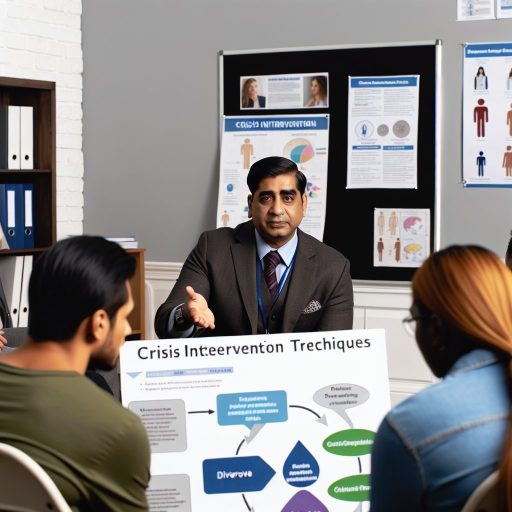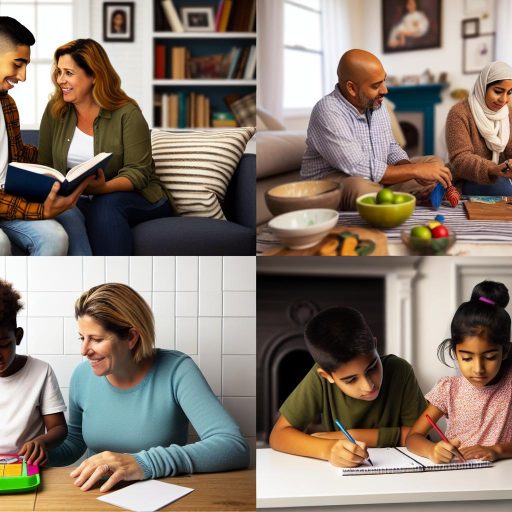Introduction
Child custody issues in domestic violence cases are complex and require special attention.
Definition of Child Custody
Child custody refers to the legal and practical relationship between a parent and a child.
Definition of Domestic Violence
Domestic violence is a pattern of behaviors used by one partner to maintain power and control over another.
Impact of Domestic Violence on Child Custody Cases
Domestic violence can significantly impact child custody cases, as it raises concerns about the safety and well-being of the child.
Understanding the Legal Process
In cases involving child custody and domestic violence, it is crucial to understand the legal process.
It is important to know the different steps involved in filing for child custody in the midst of domestic violence.
Understanding how the legal system works can help victims navigate through the complexities of their case.
Discuss the Importance of Seeking Legal Advice
Seeking legal advice is essential for victims of domestic violence to protect their rights and interests.
A lawyer specializing in family law can provide guidance on the best course of action to take.
Legal counsel can ensure that victims understand their legal rights when it comes to child custody issues.
Explain the Role of Law Enforcement in Domestic Violence Cases
Law enforcement plays a crucial role in ensuring the safety and protection of victims of domestic violence.
Police officers are trained to respond to domestic violence incidents and provide assistance to those in need.
Law enforcement can intervene in cases where there is a threat to the safety of victims and their children.
Provide Information on Legal Resources Available for Victims of Domestic Violence
There are various legal resources available to victims of domestic violence to help them navigate through their case.
Legal aid organizations offer free or low-cost legal services to individuals who have experienced domestic violence.
These resources can provide victims with the necessary support and guidance to protect themselves and their children.
Evaluating the safety of the child
When evaluating the safety of a child in domestic violence cases, it is crucial to assess the level of risk involved.
It is important to consider the history of abuse within the family and the potential for future harm.
Observing the child’s behavior and any signs of distress can also provide valuable insights into their safety.
Consulting with professionals such as therapists or social workers can help in determining the impact of the violence on the child.
Transform Your Career Today
Unlock a personalized career strategy that drives real results. Get tailored advice and a roadmap designed just for you.
Start NowFactors that courts consider when determining child custody
Courts consider the presence of domestic violence when determining child custody to ensure the safety of the child.
The nature and severity of the abuse, as well as the frequency of incidents, play a significant role in custody decisions.
The ability of the abusive parent to provide a safe and stable environment for the child is also a crucial factor.
Courts may also consider the protective measures in place to safeguard the child from further harm.
Tips on documenting evidence of domestic violence
It is essential to document any incidents of domestic violence to strengthen your case in court.
Keep a detailed record of dates, times, and specific incidents of abuse, including any witnesses present.
Photographs of injuries, police reports, and medical records can serve as valuable evidence in court.
Save any threatening messages, emails, or social media posts as additional proof of abuse.
The importance of child safety in custody decisions
The safety and well-being of the child should be the primary focus when making custody decisions in domestic violence cases.
Ensuring that the child is protected from further harm is paramount in any custody arrangement.
Courts prioritize the child’s safety above all else and may limit or restrict visitation with the abusive parent.
Creating a safe and stable environment for the child is essential for their emotional and physical development.
Gain More Insights: Public Health Social Work and Emergency Preparedness
Creating a safety plan is crucial for victims of domestic violence.
It is essential to ensure their protection.
Steps to create a safety plan:
- Identify safe spaces: Determine areas where you feel secure and can seek refuge.
- Develop a communication plan: Set up a code word or signal to alert others in emergencies.
- Pack an emergency bag: Include essentials like clothes, documents, medication, and cash.
- Document evidence: Keep records of incidents, injuries, and threatening messages for legal proof.
The Importance of having a safety plan in place during custody proceedings:
- Protects the safety of the victim and children involved.
- Provides guidance in case of emergencies or threats.
- Helps in demonstrating a history of abuse to the court.
- Ensures a sense of control and empowerment in a challenging situation.
Resources for creating a safety plan:
- National Domestic Violence Hotline: Offers support and guidance in developing a safety plan.
- Local shelters and advocacy organizations: Provide resources and assistance for victims.
- Legal aid services: Offer legal guidance on protecting yourself and your children.
- Therapy and counseling services: Help in coping with trauma and developing safety strategies.
A safety plan is a vital tool in navigating child custody issues in domestic violence cases.
Showcase Your Business Today
Reach thousands of readers actively exploring professional services. Publish your business profile and grow your audience now.
Publish NowIt ensures the well-being and protection of victims and their children during challenging legal proceedings.
By taking proactive steps and utilizing available resources, individuals can safeguard themselves and their loved ones in times of crisis.
Explore Further: The Role of Health Educators in Disease Prevention
Communicating with the other parent
Be clear and concise when discussing parenting issues.
Avoid confrontational language or behavior during discussions.
Use a neutral tone and stick to the facts.
Communicate through written means like email or text for documentation.
Discuss strategies for communicating with the other parent in domestic violence cases
- Consider using a trusted mediator or therapist to facilitate communication.
- Set up a parenting plan that outlines communication guidelines and expectations.
- Seek legal advice on how to communicate effectively while adhering to court orders.
- Utilize technology tools to communicate safely, such as secure messaging apps.
Provide tips for setting boundaries and maintaining safety
- Establish clear boundaries for communication and stick to them.
- Have a safety plan in place in case of any dangerous situations.
- Limit in-person contact and opt for supervised visits if necessary.
- Inform trusted individuals about your situation and seek their support.
Discuss the importance of having a support system in place
- Reach out to friends, family, or support groups for emotional support.
- Consider therapy or counseling to process your feelings and experiences.
- Join organizations that provide resources for survivors of domestic violence.
- Consult with legal professionals to understand your rights and options.
Discover More: How Adoption Counselors Prepare Families for Adoption

When navigating child custody issues in domestic violence cases, seeking counseling for the child is crucial.
Importance of Seeking Counseling for Children
- Counseling helps children cope with the traumatic experience of witnessing domestic violence.
- It helps them process their emotions and develop healthy coping mechanisms.
- Provides them with a safe space to express themselves and seek support.
Resources for Finding Counseling Services
- Contact local domestic violence shelters for recommendations.
- Reach out to school counselors or social workers for referrals.
- Search online for therapists specializing in trauma and child counseling.
Impact of Counseling on the Child’s Well-being
- Improves their emotional resilience and helps them heal from the trauma.
- Enhances their social and cognitive development through therapy sessions.
- Provides them with tools to navigate challenging emotions and situations.
Seeking counseling for children who have witnessed domestic violence is essential for their well-being and healing process.
It is important to provide them with the necessary support and resources to help them cope and thrive despite the challenges they may have faced.
Learn More: Addressing Social Skills in Life Skills Instruction
Child Custody and Domestic Violence
As you navigate child custody issues in domestic violence cases, remember that your safety and well-being, as well as that of your children, are of paramount importance.
Seek help and support from professionals and organizations who specialize in assisting victims of domestic violence.
Key Points Recap
We discussed the importance of documenting incidents, seeking legal advice, and prioritizing safety in child custody cases involving domestic violence.
Remember that you are not alone and there are resources available to support you.
You Are Not Alone
You are strong and resilient. Your well-being and that of your children matter.
Seek help, speak up, and know that you deserve a safe and healthy future.
Resources for Support
Reach out to organizations such as the National Domestic Violence Hotline, local women’s shelters, and legal aid services for additional support and guidance.
Remember, you are not alone in this journey.
Additional Resources
Minnesota Department of Human Services / Minnesota Department …
[E-Books for Sale]
The Big Book of 500 High-Paying Jobs in America: Unlock Your Earning Potential
$19.99 • 500 High-Paying Jobs • 330 pages
Explore 500 high-paying jobs in America and learn how to boost your career, earn more, and achieve success!
See All 500 High-Paying Jobs of this E-Book
1001 Professions Without a Degree: High-Paying American Jobs You Can Start Now
$19.99 • 1001 Professions Without a Degree • 174 pages
Discover 1001 high-paying jobs without a degree! Unlock career tips, skills, and success strategies for just $19.99!




